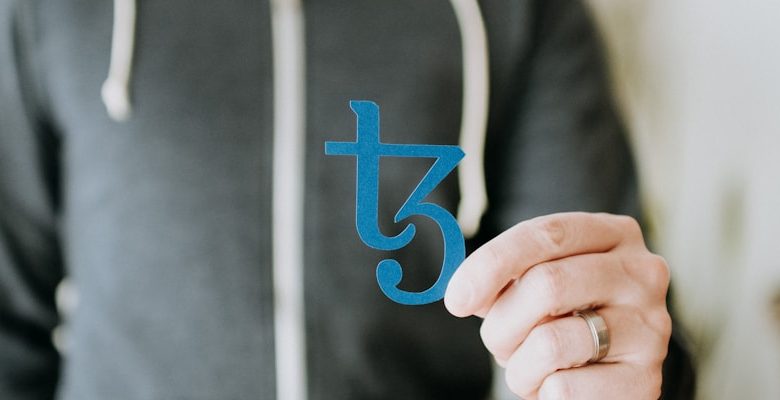The Role of AI in the Future of Blockchain

- Understanding the intersection of AI and blockchain technologies
- How AI is revolutionizing the way we approach blockchain development
- Challenges and opportunities of integrating AI into blockchain systems
- The potential impact of AI on the scalability of blockchain networks
- AI-powered solutions for enhancing security in blockchain applications
- Predicting the future trajectory of AI in the evolution of blockchain technology
Understanding the intersection of AI and blockchain technologies
In the realm of blockchain technology, the integration of artificial intelligence (AI) has opened up new possibilities and opportunities. The intersection of AI and blockchain technologies has the potential to revolutionize industries and streamline processes by combining the power of machine learning with the security and transparency of blockchain.
AI can enhance blockchain networks by improving data analysis, enhancing security measures, and automating various tasks. By leveraging AI algorithms, blockchain systems can detect patterns, optimize transactions, and identify potential threats in real-time. This synergy between AI and blockchain technologies can lead to more efficient and effective operations across various sectors.
Moreover, the integration of AI in blockchain technology can also facilitate smart contracts and decentralized applications (dApps). AI-powered smart contracts can automatically execute actions based on predefined conditions, reducing the need for human intervention and minimizing the risk of errors or fraud. Additionally, AI-driven dApps can offer personalized services, predictive analytics, and automated decision-making processes.
Overall, the collaboration between AI and blockchain technologies holds great promise for the future of digital innovation. As these technologies continue to evolve and converge, businesses and industries will be able to leverage their combined capabilities to drive growth, enhance security, and unlock new opportunities for value creation. By understanding the intersection of AI and blockchain technologies, organizations can stay ahead of the curve and harness the full potential of these transformative technologies.
How AI is revolutionizing the way we approach blockchain development
Artificial Intelligence (AI) is playing a significant role in revolutionizing the way we approach blockchain development. By leveraging AI technology, developers can automate various tasks, optimize processes, and enhance the overall efficiency of blockchain projects.
One key way AI is transforming blockchain development is through smart contract creation. AI algorithms can analyze vast amounts of data to identify patterns and generate smart contracts that are more secure and efficient. This not only speeds up the development process but also reduces the likelihood of errors.
Moreover, AI is being used to improve blockchain scalability and performance. By using machine learning algorithms, developers can optimize blockchain networks to handle larger transaction volumes and increase processing speeds. This is essential for ensuring the widespread adoption of blockchain technology.
Additionally, AI is helping to enhance security in blockchain systems. AI-powered tools can detect and prevent malicious activities, such as hacking and fraud, by analyzing data in real-time and identifying suspicious behavior. This proactive approach to security is crucial for maintaining the integrity of blockchain networks.
In conclusion, the integration of AI into blockchain development is reshaping the industry by streamlining processes, increasing efficiency, and bolstering security. As these technologies continue to evolve, we can expect even more innovative solutions that will drive the future of blockchain forward.
Challenges and opportunities of integrating AI into blockchain systems
Integrating AI into blockchain systems presents a myriad of challenges and opportunities for the future of technology. One of the main challenges is the complexity of merging two cutting-edge technologies, each with its own unique set of protocols and requirements. However, overcoming this challenge opens up a world of possibilities for enhancing the efficiency and security of blockchain networks.
One of the key opportunities of integrating AI into blockchain is the potential for improving scalability and transaction speeds. AI algorithms can analyze data and predict patterns, allowing for more efficient processing of transactions and blocks. This can help alleviate some of the scalability issues that have plagued blockchain networks in the past.
Another opportunity lies in the enhanced security that AI can bring to blockchain systems. By using machine learning algorithms to detect suspicious activity and potential threats, blockchain networks can become more resilient to cyber attacks and fraud. This added layer of security is crucial in ensuring the integrity and trustworthiness of blockchain transactions.
The potential impact of AI on the scalability of blockchain networks
Artificial Intelligence (AI) has the potential to revolutionize the scalability of blockchain networks by optimizing various processes and enhancing overall efficiency. AI algorithms can analyze large amounts of data in real-time, identifying patterns and trends that can help improve the performance of blockchain networks. By leveraging AI, blockchain networks can dynamically adjust parameters such as block size, transaction speed, and network congestion to accommodate growing demands.
One of the key ways AI can impact blockchain scalability is through predictive analytics. By using machine learning algorithms, blockchain networks can anticipate future network congestion and adjust their protocols accordingly. This proactive approach can help prevent bottlenecks and ensure smooth operation even during periods of high activity.
Furthermore, AI can also be used to optimize consensus mechanisms within blockchain networks. By analyzing historical data and network performance metrics, AI algorithms can suggest changes to consensus algorithms to improve efficiency and reduce energy consumption. This can lead to faster transaction speeds and lower fees, making blockchain networks more accessible to a wider range of users.
In conclusion, the integration of AI technologies into blockchain networks has the potential to significantly enhance scalability and performance. By leveraging AI for predictive analytics and consensus optimization, blockchain networks can adapt to changing demands and operate more efficiently. This synergy between AI and blockchain represents a promising future for the development of decentralized applications and services.
AI-powered solutions for enhancing security in blockchain applications
AI-powered solutions play a crucial role in enhancing security in blockchain applications. By utilizing artificial intelligence algorithms, blockchain networks can detect and prevent potential security threats in real-time. This proactive approach helps in safeguarding sensitive data and ensuring the integrity of transactions.
One key benefit of AI in blockchain security is its ability to analyze large volumes of data quickly and accurately. This enables the system to identify patterns and anomalies that may indicate a security breach. By continuously monitoring the network, AI can detect any suspicious activity and take immediate action to mitigate risks.
Moreover, AI-powered solutions can also assist in automating security protocols and updating encryption keys, making it harder for malicious actors to gain unauthorized access to the blockchain. This proactive security measure adds an extra layer of protection to the network, reducing the likelihood of successful cyber attacks.
Predicting the future trajectory of AI in the evolution of blockchain technology
The future trajectory of artificial intelligence (AI) in the evolution of blockchain technology is poised to revolutionize various industries. AI has the potential to enhance the efficiency, security, and scalability of blockchain networks. By leveraging AI algorithms, blockchain systems can automate tasks such as transaction validation, data analysis, and smart contract execution.
One of the key areas where AI can significantly impact blockchain technology is in consensus mechanisms. AI-powered consensus algorithms can improve the speed and accuracy of transaction verification, leading to faster block confirmation times and increased network throughput. This can address one of the major challenges facing blockchain networks – scalability.
Moreover, AI can also play a crucial role in enhancing the security of blockchain systems. By utilizing machine learning algorithms, blockchain platforms can detect and prevent fraudulent activities, such as double-spending attacks and data manipulation. This not only safeguards the integrity of the blockchain but also enhances user trust in the technology.
Furthermore, the integration of AI and blockchain can lead to the development of more sophisticated decentralized applications (dApps). AI can enable dApps to analyze data, make predictions, and optimize processes in real-time, opening up new possibilities for innovation in various sectors, including finance, healthcare, and supply chain management.
In conclusion, the future of blockchain technology is intertwined with the advancement of artificial intelligence. By harnessing the power of AI, blockchain networks can overcome existing limitations and unlock new opportunities for growth and development. As AI continues to evolve, we can expect to see even greater synergies between these two transformative technologies in the years to come.



